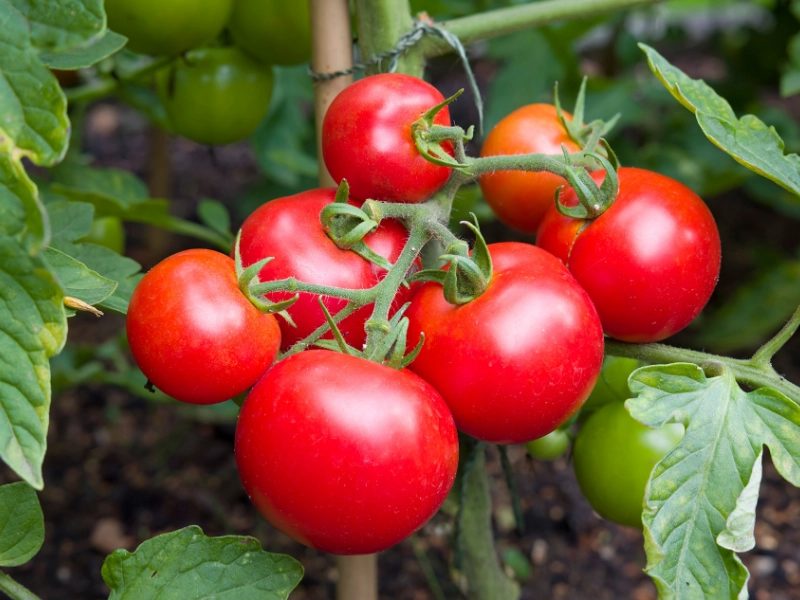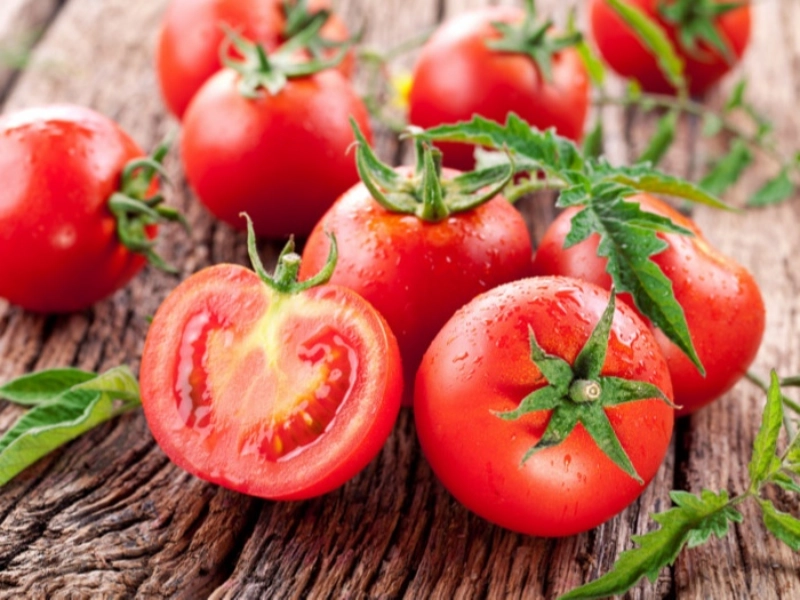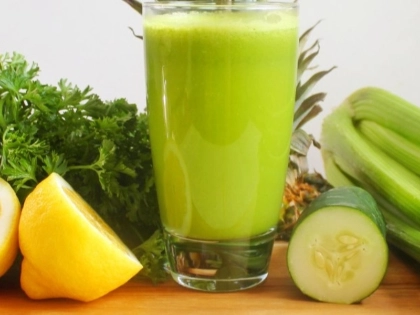Why Do I Feel Good After Eating Tomatoes?
Tomatoes are a nutritious component of your diet and a great summertime pleasure. They are low in calories and a good source of potassium, lycopene, and vitamin C. They also include lutein and zeaxanthin, among other phytochemicals. Lycopene, a fat-soluble antioxidant that shields the brain's fat cells and may stave against depression, is abundant in tomatoes. They may also lower blood pressure and help lower the risk of heart disease.
Lycopene is abundant in tomatoes.

They provide a healthy amount of vitamin C.
 Vitamin C, which is abundant in tomatoes, is a potent antioxidant that shields cells from damage and neutralizes free radicals in the blood. Additionally, they contain a lot of potassium, which relaxes the blood vessel walls and lowers high blood pressure.
Additionally, lutein and zeaxanthin, which are found in tomatoes, can help shield your eyes from macular degeneration. They may even stop aging-related vision loss and reduce headaches brought on by eye strain.
Tomatoes include lycopene, which can lower your risk of stomach, colorectal, and prostate cancer. Cooked tomatoes have more lycopene because your body can absorb it more readily due to the heat. Additionally, since organic tomatoes typically have higher lycopene levels, try to choose those.
Eating tomatoes with fat, such as cheese or olive oil, is the best method to maximize their nutritional value. These components' fatty acids may facilitate your body's absorption of lycopene.
Vitamin C, which is abundant in tomatoes, is a potent antioxidant that shields cells from damage and neutralizes free radicals in the blood. Additionally, they contain a lot of potassium, which relaxes the blood vessel walls and lowers high blood pressure.
Additionally, lutein and zeaxanthin, which are found in tomatoes, can help shield your eyes from macular degeneration. They may even stop aging-related vision loss and reduce headaches brought on by eye strain.
Tomatoes include lycopene, which can lower your risk of stomach, colorectal, and prostate cancer. Cooked tomatoes have more lycopene because your body can absorb it more readily due to the heat. Additionally, since organic tomatoes typically have higher lycopene levels, try to choose those.
Eating tomatoes with fat, such as cheese or olive oil, is the best method to maximize their nutritional value. These components' fatty acids may facilitate your body's absorption of lycopene.
They offer a good potassium supply.
 Tomatoes are rich in potassium and lycopene, an antioxidant that fights disease. They also include other minerals and vitamin C. They can aid in the prevention of high blood pressure, heart disease, and stroke and are an essential component of a balanced diet. Tomatoes are an excellent source of nutritional fiber and low in calories. They are one of the five servings of vegetables per day that are advised, and they can be consumed raw or cooked.
Tomatoes come in three different forms: fresh, pasted or sauced, and canned. They go well with spaghetti, salads, soups, and chili. You can even drink tomato juice or include them into a smoothie.
Foods high in potassium also include salmon, mussels, and avocados. A half-cup of avocado has 364 mg of potassium, compared to 534 mg in a 3-oz portion of wild Atlantic salmon. These meals can lower the risk of heart disease and are also high in omega-3 fatty acids. Aim to consume them no less than twice a week.
Tomatoes are rich in potassium and lycopene, an antioxidant that fights disease. They also include other minerals and vitamin C. They can aid in the prevention of high blood pressure, heart disease, and stroke and are an essential component of a balanced diet. Tomatoes are an excellent source of nutritional fiber and low in calories. They are one of the five servings of vegetables per day that are advised, and they can be consumed raw or cooked.
Tomatoes come in three different forms: fresh, pasted or sauced, and canned. They go well with spaghetti, salads, soups, and chili. You can even drink tomato juice or include them into a smoothie.
Foods high in potassium also include salmon, mussels, and avocados. A half-cup of avocado has 364 mg of potassium, compared to 534 mg in a 3-oz portion of wild Atlantic salmon. These meals can lower the risk of heart disease and are also high in omega-3 fatty acids. Aim to consume them no less than twice a week.
They offer a healthy amount of fiber.
 A healthy digestive system depends on a diet high in fiber, which tomatoes provide in plenty. In addition, they have vitamin C, folate, and other phytochemicals and antioxidants. These substances are good for your immune system, heart, and general health. Consuming a lot of tomatoes can lower the risk of high blood pressure, inflammation, and cancer.
Lycopene, which is found in tomatoes, helps shield your skin from UV damage. They also include organic compounds that support cell regeneration and combat free radicals. Furthermore, lycopene can reduce your chance of contracting specific diseases and stop oxidative stress.
Select organic tomatoes to ensure you get the most amount of lycopene from them. Their phenolic chemicals are concentrated more than those from traditionally grown ones, and they take longer to ripen.
A healthy digestive system depends on a diet high in fiber, which tomatoes provide in plenty. In addition, they have vitamin C, folate, and other phytochemicals and antioxidants. These substances are good for your immune system, heart, and general health. Consuming a lot of tomatoes can lower the risk of high blood pressure, inflammation, and cancer.
Lycopene, which is found in tomatoes, helps shield your skin from UV damage. They also include organic compounds that support cell regeneration and combat free radicals. Furthermore, lycopene can reduce your chance of contracting specific diseases and stop oxidative stress.
Select organic tomatoes to ensure you get the most amount of lycopene from them. Their phenolic chemicals are concentrated more than those from traditionally grown ones, and they take longer to ripen.








